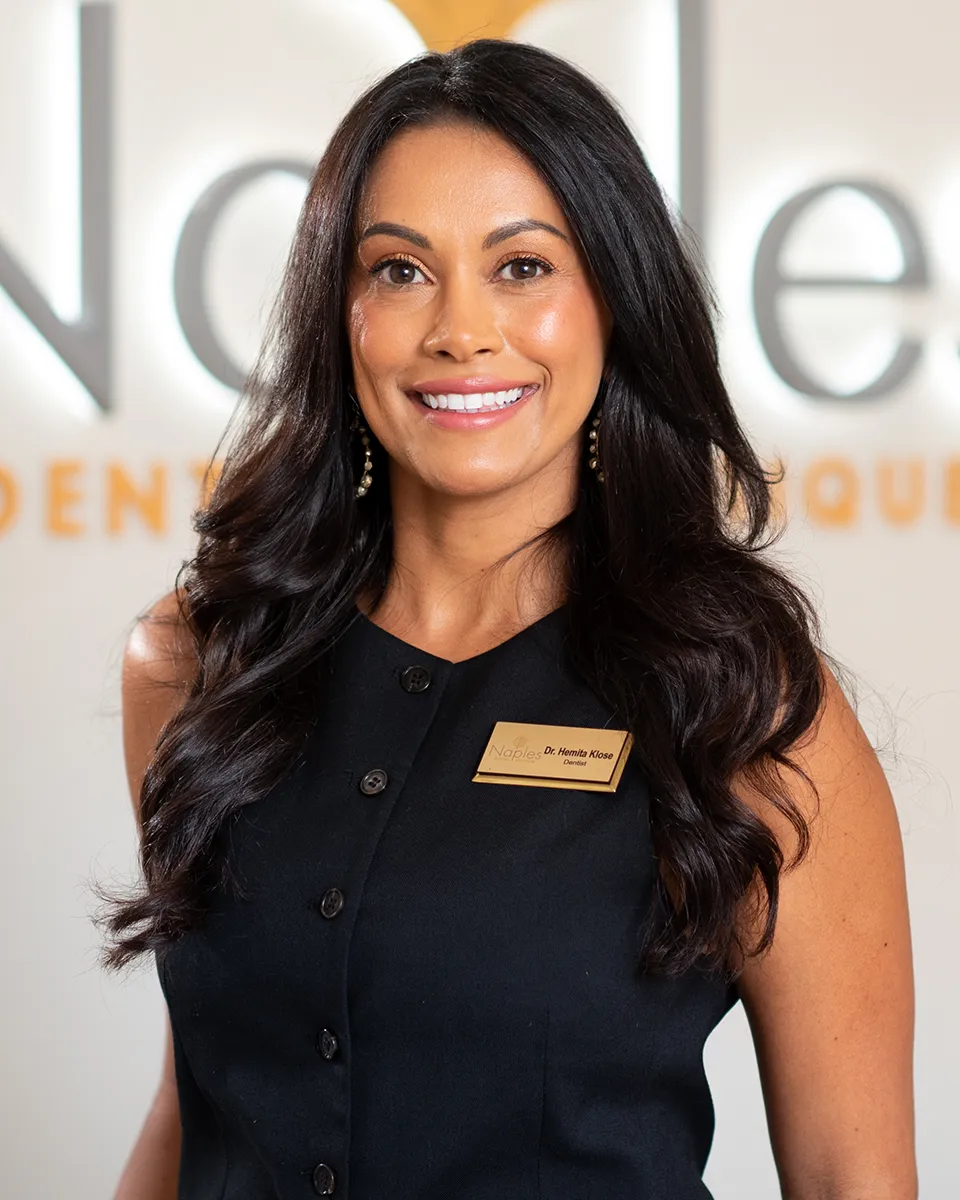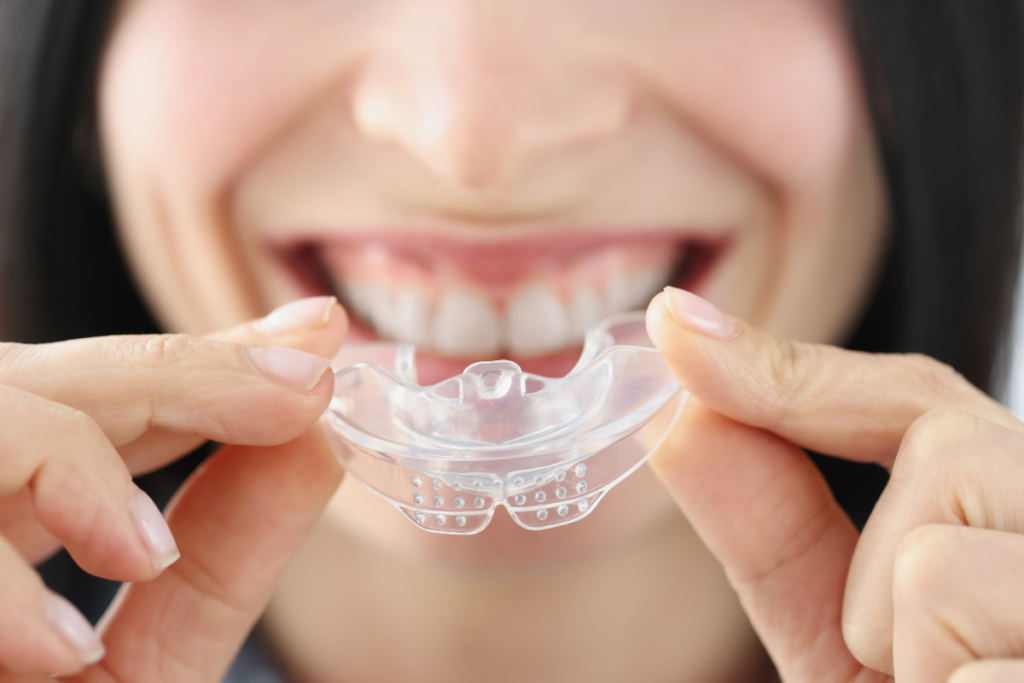Nightguards and oral sleep appliances are designed to cover and protect your teeth and gums while you sleep. The custom-fitted products we offer at Naples Dental Boutique in Naples, FL, fit better and are far more effective at protecting your smile than over-the-counter products.


By securely fitting over your teeth, a nightguard functions as a dental appliance intended to relieve various conditions such as teeth grinding, snoring, sleep apnea, or temporomandibular joint disorder (TMJ). Most of these devices gently push the jaw forward or depress the tongue to open your airway, while others help prevent tooth erosion by stopping your teeth from grinding together.
Oral sleep appliances fit over teeth like orthodontic retainers during sleep and support the jaw in a forward position to ensure that your airway remains open. A custom-fit oral sleep appliance can help improve sleep, revitalize your health, and restore alertness.
Adults and children that deal with jaw clenching or bruxism (teeth grinding) or who suffer from sleep apnea or TMJ can benefit from wearing nightguards and oral sleep devices during sleep. These devices also help prevent damage to teeth and improve overall restfulness during the night.
Oral appliance therapy allows patients to sleep well at night without any drawbacks associated with CPAP machines. Here are the key benefits of oral appliance therapy:
• Corrects Underlying Problems: Oral appliance therapy offers a significant advantage by addressing the root causes of sleep-disordered breathing and effectively resolving them. This means that once the desired results are achieved, you will no longer need to wear an appliance at night while you sleep anymore.
• Comfortable: Patients often complain that the mask connected to CPAP machines is uncomfortable, and some have difficulty keeping it in place while asleep. Others complain that the air pump either causes bloating or is noisy. With oral appliance therapy, however, noise isn’t a factor, and the devices are comfortable to wear, which makes it more likely that you will experience better sleep.
• Portable: One of the patients’ biggest complaints about CPAP machines is that they are too bulky. Oral appliances, however, are quite the opposite. Oral appliances are small and discreet, making them very easy to move and travel around.
• High Success Rate: Oral appliance therapy patients don’t have to tolerate air being pushed down their throat and don’t wake up with a dry, stuffy nose or a rash around the mouth. Since all these issues are avoided, it is much easier to succeed with oral appliance therapy.
• Non-Invasive: Unlike surgical treatments, oral appliance therapy is completely reversible and non-invasive. If you are unhappy with the oral sleep appliance, you can simply remove it.
If you suffer from bruxism, TMJ disorder, bite-related disorders, or sleep apnea, we encourage you to contact Naples Dental Boutique in Naples, FL, to find out whether our custom nightguards and oral sleep appliances might be the right treatment for you.
At Naples Dental Boutique, we offer oral appliance therapy to treat the conditions mentioned earlier. We will work with you to find the right device for your needs. We will also ensure that it fits properly and provide instructions for caring for it.
Call us today at Naples Dental Boutique to schedule an appointment!
It’s virtually impossible not to mention CPAP when discussing sleep apnea treatment. Continuous positive airway pressure (CPAP) is a machine that keeps your breathing airways open while you sleep using mild air pressure. Your doctor may prescribe CPAP for treating sleep-related breathing disorders, including sleep apnea.
Scientific studies consistently show that CPAP is the most effective oral appliance for most people with sleep apnea that want a healthy night’s sleep. Nevertheless, dental appliances designed for sleep apnea can effectively treat mild forms of the condition. However, oral appliances aren’t recommended for more severe cases of sleep apnea.
Oral appliances are a viable, effective alternative to CPAP in most instances. They may also prove to be a safer alternative. To determine which option suits you best, you should consider speaking with experts at Naples Dental Boutique who are familiar with both types of treatment to receive an objective comparison for your needs.
Oral appliance therapy doesn’t have to work in isolation. It can be used together with CPAP and other treatments. Patients with severe sleep apnea can benefit from combining oral appliance therapy with other therapies, such as radiofrequency ablation (RFA) and other non-invasive solutions.